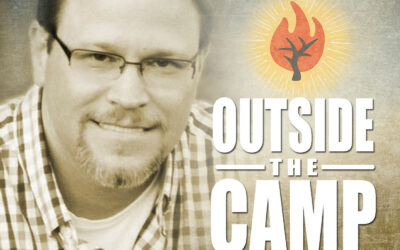Nicodemus failed to comprehend the spiritual consequence and heavenly requirement of being “born again” nor could he grasp the reason for it. I am afraid that many who now claim to be “born again” are no further along than Nicodemus in terms of seeing the Kingdom of God. Yet seeing and entering into the Kingdom of God is the reason why Jesus said we MUST be born again.
Latching onto these words of Jesus, many people today will indeed claim to be “born again.” They have learned the correct terminology. But is that all we need to be concerned with? Is it possible that a person has learned to say they are “born again” simply because that is what they have been taught to say? Is it the phraseology that Jesus wants us to have or the actual experience of being born from above, born of the Spirit?
Although it is the exact same thing as being “born again”, most cannot answer what being “born from above” or “born of the Spirit” means because that has not entered into their vocabulary yet. But they all know what “born again” means – it means to be a Christian! Even if they can describe it, the answer sounds too pat, like something learned at catechism class and recited as a theological doctrine instead of a something that has resulted from a life-changing encounter with the Risen Lord.
Today with so many “born again” people claiming salvation without the accompanying evidences and fruits of repentance, Jesus might well be saying to them, “You have made an intellectual decision to embrace the Christian religion, and you have confessed a certain level of agreement with Me and My teachings; and for that, they consider you ‘born again.’ But mental acceptance, doctrinal agreement, and canned confession is not enough for you to be My disciple. Your first born-again experience under the auspices of religion is seriously flawed. Leave that ground now and come to Me; experience new birth the way I intended it from the beginning. You must be born again – again! ”
What does it really mean to be “born again”? It cannot be explained with an A.B.C. kind of three-step scientific process. Spiritual birth is a revolutionary thing, something that strikes so deeply into the core of a person that they find it impossible to go on as before. It is a change of heart, which causes a change of mind, which results in a dramatic change of behavior and values. It is nothing short of a death, burial, and resurrection.
In Saul of Tarsus you have a graphic example of the born-again person. Like Nicodemus, Saul was also a teacher and a master of Israel but was just as ignorant as Nicodemus was concerning Jesus of Nazareth. Then something happened to Saul. Now Saul is different. Someone from another realm reached down and grabbed him. He saw the Light in the very truest sense of the word, and it was no insignificant flicker of understanding dreamed up in his own imagination – it was a bright and shining Light that burned through him and rendered his physical eyes absolutely impotent. He had heard the Voice, and that Voice was calling his name – “Saul, Saul! Why are you persecuting Me?”
Saul saw and heard something completely above and beyond the realm of his ordinary religious existence, something so wonderful and inexpressible that his highest and best possible thoughts and beliefs about God up until that point were now considered dung, waste, manure, garbage, and refuse – Saul’s words, not mine.
There on the road to Damascus he met Jesus. That meeting changed the course of his life and even the course of history. The outcome of that meeting was not merely an adjustment to his personal theology, or an intellectual re-evaluating of his doctrinal position on the subject of the Kingdom of God. It was the radical, foundation-destroying, earth-shattering crisis of finally seeing Jesus as He in fact is and being compelled to bow down and worship this Person: and to hell with everything he had preached, taught, thought, believed, and done before THAT day! THAT day was the day of his new birth.
You must know THAT is a supernatural happening, because the religious will not willingly give up their doctrines and their beliefs for anyone or anything. Far from giving them up, they will attack (and if possible, kill) those who hold to different doctrines and beliefs, and will find Scriptural justification for stoning those who oppose them. A person like that does not just wake up one day and decide to change. They are beyond the reach of any ordinary, human witness.
When I look at people who are recommended to me and I read their testimonies I often struggle to find the moment in which they were “born again – again”. I look for their road to Damascus experience that transformed them from a religious zealot into a disciple of the Living Lord. Most of the time I do not find this at all, but instead, I find a long, boring list of ministries and churches and movements they have been involved with. And this history is not recounted for the purpose of counting it all dung so that Christ may be embraced as Enough, but is rehearsed for the purpose of establishing the supposed authority and credentials of the person in question.
Have you met the Person that Paul met? In his letter to the Romans, this same Saul (now known as Paul) would write, “If you confess with your mouth the Lord Jesus, and believe in your heart that God raised Him from the dead, you will be saved” (Rom. 10:9). If we approach this with a scientific analysis and lift this statement up and separate it from the man who wrote it then we would have a formula for “how to be saved.” And this is what many people do. But they overlook the road to Damascus meeting with Jesus that formed the basis of this confession and belief. Paul was not led in a prayer to confess the Lord Jesus, nor was he quizzed as to his belief concerning the resurrection of Jesus. Had you witnessed to him he would have flatly denied both the Lordship and the resurrection of Christ and would have you cast into prison for heresy.
Paul’s confession and the belief did not lead to this encounter with Jesus; it was the encounter with Jesus that led to his confession and belief! How quickly we forget – if we ever really understand it at all – that “you have not chosen Me, but I have chosen you” (Jn 15:16a). We have been taught to say we are saved by grace (once again, employing the correct phraseology) but we secretly believe we had something to do with it: it was our prayer, our faith, our confession, our belief, our walking the aisle, our joining the church, our decision that saved us. Heaven is our reward for making the right decision, unlike so many poor ignorant sinners who made the wrong decision!
But Jesus says, “No man can come to me unless the Father draws him” (Jn 6:44) and Paul declares that “No man can say ‘Jesus is Lord’ but by the Holy Spirit” (I Cor. 12:3b). Paul could confess Jesus as Lord and believe Jesus was risen from the dead because he did, in fact, meet the Lord Jesus as a Living Person; and that was the result of Jesus coming to Paul, not Paul coming to Jesus!
“Who then can be saved?” the disciples asked Jesus (cf. Mt. 19:25,26). The answer: “With man it is impossible.” Not just difficult, not just really, really hard, but impossible with man. Not do-able. Not attainable. Out of reach.
But Jesus, we have made it so easy to be saved! Three simple steps! A.B.C.! Confess and possess! No, says Jesus. This does not originate with you, and is impossible with men: “But with God, all things are possible!” Something from Above is required, something big enough and strong enough and powerful enough to knock a person to the ground and take their breath away.
One moment of seeing is worth a lifetime of being preached to. May God open our eyes.












